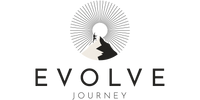A blank canvas can be quite intimidating. When you sit down to paint, it's easy to feel overwhelmed. Perhaps it’s a block of creativity or imposter syndrome creeping in. Either way, there’s a very good reason why masterpieces don’t occur accidentally. It’s because they are bloody hard work.
Recently I attended a painting course at the remote Burgh Island Hotel in Devon with the brilliant artist, Emma Carter Bromfield. Burgh Island is a special place, 200m off mainland England, only accessible by a narrow strip of sand which disappears at high tide, leaving only a sea tractor or helicopter as remaining options, the latter being more common than you’d think. The dramatic waves and textured coastline made it the perfect place to get inspired and try to learn something new.
Pictured: Burgh Island on a much calmer day

Below are some lessons I took from it that were more than just brush techniques and could be applied more generally to make for a better life.
In no particular order:
-
Do the basics well and consistently. Throughout the day, Emma kept reminding us of something simple she wished she knew when she first started painting over 20 years ago: correct setup and regular maintenance of your area. If you don't have your house in order and the basics sorted, everything else is more difficult; those moments of doubt, panic, and when it all goes wrong are going to be exacerbated. Keep paints on the right side of your canvas if you're right-handed, give yourself plenty of space to move freely, make sure nothing is touching your canvas and clear your space regularly. If your house isn't in order, you will end up with a muddy mess through either silly mistakes or lack of order and separation.
-
Lower your expectations. If you think you’re going to magically skip the thousands of hours it takes for mastery, you’re mistaken. Instead, lower your expectations and be happy with your progress, big or small. In the early days of pursuits, disconnecting from the end outcome can be helpful and instead focus on the benefits of the process itself. Be okay with the fact that it is all growth, mistakes are retrievable and often make for a completely new horizon. Quite often for the best, and if not, there's certainly a lesson to be had. Adopt a learning growth mindset, appreciating that the mistakes are just lessons.
-
Embrace artistic license. Don’t be afraid to embellish with artistic license to let your creativity flow. Don’t let preconceived notions and fixated ideals halt your progress and frustrate you. The end result may be far away from what you first imagined, but it may still be an awesome outcome.
-
Know when to stop. Perfectionism could make things better, or you could end up overworking it and never having any output.
-
Learning from someone else's mastery is a tremendous shortcut. Being able to leverage someone else's techniques, ways of working, and advice they’ve picked up from thousands of hours working on something fast-forwards the learning process and is a shortcut to improvement. That's exactly why we are so fond of journaling and are fascinated by the human lessons that have stood the test of time. They have survived because they are so relevant, even today.
-
Everyone has to start somewhere. Don’t let fear of being a novice stop you from trying. Before the course, my own insecurities made me worry that I would be out of place in a room full of talented artists, that I would be mocked for my stickmen. Far from it, everyone was at different stages but super supportive. Taking action might at first feel daunting, but what you can achieve in the long term will be staggering. Don’t regret never starting.

Is there anything you're excited to try or learn? What lessons, coaching or extra help would help you? You'd be surprised how inexpensive and widely available these are in almost anything.
